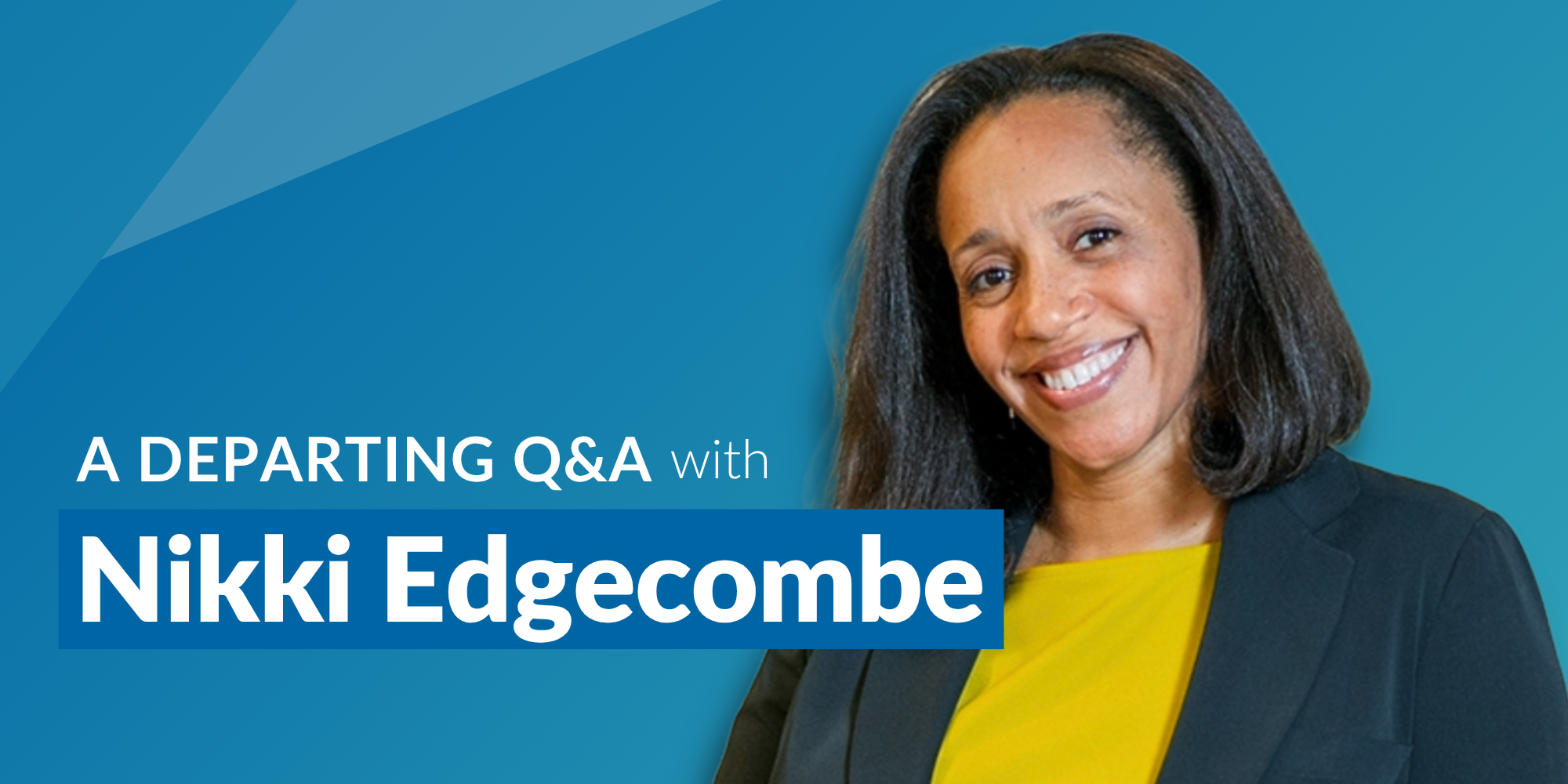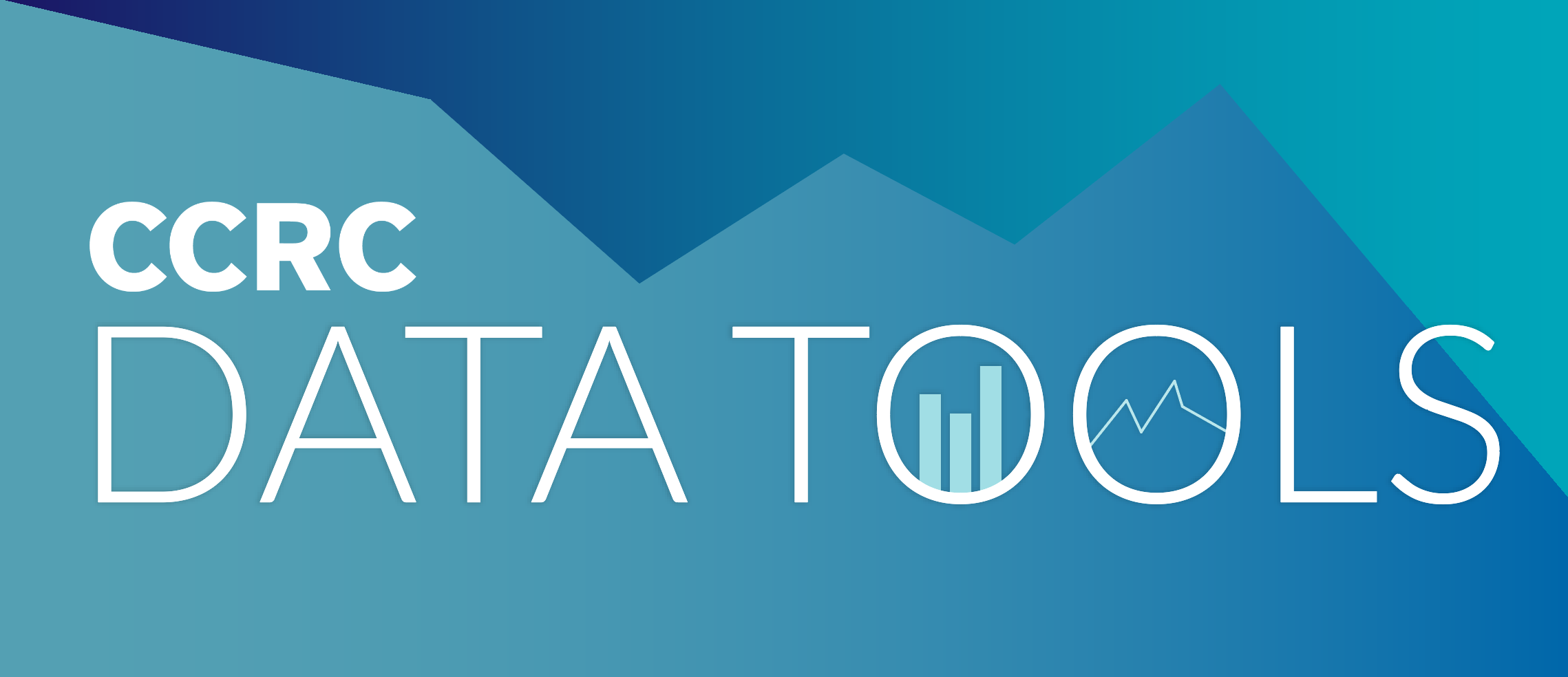After more than fifteen years at CCRC, our friend and colleague Nikki Edgecombe is leaving CCRC to join ECMC Foundation.
During her years at CCRC, Edgecombe has led a large and varied portfolio of research, including our teaching and learning studies and several major projects on developmental education reform. She served as the principal investigator for the federally funded Center for the Analysis of Postsecondary Readiness (CAPR) and co-principal investigator for the Postsecondary Teaching With Technology Collaborative. She also spearheaded important work on English learners, community college finance, and workforce training, and has been a major force behind our efforts to examine issues of equity throughout our research.
“It is a significant loss to CCRC but a great opportunity for Nikki and a boon for the field,” CCRC Director Thomas Brock said.
Elizabeth Ganga had the chance to sit down with Edgecombe before her departure to talk about her time at CCRC and where she’s headed next.
This Q&A has been condensed and edited for clarity.
Ganga: You have a varied background, including working in finance. How did you end up at CCRC? What drew you to community college research?
Edgecombe: I was interested in returning to my educational research roots after spending about eight years in finance, most of those doing research at JPMorgan’s investment bank. That happened to coincide with Obama being elected. I’d been looking for an exit plan for a while, and his election helped cement the opportunity to contribute to different things in different ways. I saw a senior research position advertised at CCRC, and it seemed like a good fit.
Ganga: A huge part of your portfolio has been developmental education reform. What part of that work do you think has had the biggest impact?
Edgecombe: I think from a policy and practice standpoint, our work in assessment and placement and instructional delivery have been most impactful. I think of it as an arc of developmental education reform and how researchers, practitioners, and policymakers joined together to figure out what works. There were a lot of different models we looked at as CAPR was beginning to take shape. We had moved from identifying a handful of institutional proof points to whole states changing their dev ed systems, both assessment and placement and course offerings. We got to partner with and learn from places like Virginia, North Carolina, CUNY, and others as they began making large-scale change. Statewide research was a helpful reminder that policy is a very important tool to encourage change.
Ganga: Teaching and learning has been another big focus of yours. Why is that important in community college research?
Edgecombe: Community colleges are teaching institutions. It’s often lost because of their many and varied missions, but at the core of their work is teaching and learning. The higher education teaching ecosystem is one defined by academic freedom and autonomy, and that can keep research, particularly research designed for improvement, at bay.
Our developmental education work was the on-ramp to our research on teaching and learning. Some of these reforms required faculty to do something different. If they didn’t have a toolbox to draw from, and if their institutions or their systems weren’t investing in professional learning opportunities, that could put them in an uncomfortable situation. While all of this was happening over the past couple decades, we also became more aware of the psychosocial components of learning. It’s not easy but important to integrate the mindset, motivation, and other psychosocial constructs into teaching and learning.
Ganga: CCRC tries to produce actionable research that has an impact on the field. A big part of your job has been forging relationships with college folks, other organizations, and policy people, and communicating broadly with the field. How has that shaped your work and CCRC more broadly?
Edgecombe: All of our work is done in partnership. Those relationships, whether they’re being operationalized in the moment or cultivated for later, are critical to what we do. We’re at our best when we’re talking to practitioners and policymakers. If we’re not talking to them, we won’t generate the kind of findings they can use. We won’t understand the everyday problems of practice and policy they’re experiencing. The partnerships we have with other research organizations and scholars are important too. When we bring our respective strengths to a project, it makes the work better and our potential impact bigger. That’s a large part of our success.
Ganga: How have you seen CCRC evolve over the past 15 years?
Edgecombe: It’s more than doubled in size since I joined. I think that’s testimony to CCRC’s strong leadership and the early work we were doing. The fact that it generated interest, was high-quality, and relevant to the field seeded more work. Our communications infrastructure evolved from almost exclusively working papers to a wide variety of multimedia products and dissemination and professional learning activities. We try to meet audiences where they are and give them the work in ways that allow them to use it.
Ganga: What’s been the most rewarding part of the work for you?
Edgecombe: The people—watching junior researchers go to graduate school and start successful academic careers or go to other research shops where they’ve become organizational leaders. I hope some of what they learned at CCRC helped them achieve that success. CCRC has a strong leadership team and an amazing bench. I can’t wait to see what the next 15 years hold.
Ganga: What can you tell us about what you’re going to be doing at ECMC?
Edgecombe: I’m joining ECMC Foundation as vice president of impact. In this role, I will oversee research and evaluation, policy, and communications. I wouldn’t be in a position to take this role had I not had such a broad, long-term experience at CCRC. CCRC gave me a platform to lead a variety of research portfolios and think through how to speak to different audiences. And, as I mentioned earlier, what a powerful lever policy is. I’m excited to work with my new colleagues in those areas and help the foundation deliver on its mission.
Ganga: Do you have any parting wisdom to share?
Edgecombe: One thing I’ve always remembered fondly is what a board member shared during one of CCRC’s strategy reviews. They said CCRC’s strength is that we can “see around the corner,” that we’re able and willing—because of our depth of knowledge of the sector—to forge new ground and think about the next things facing community colleges and how we can generate the kind of knowledge that colleges need. That reflection was the highest compliment to the organization to me. But it also was a goal, something we wanted to continue to do and focus on very intentionally. I don’t have any doubt that CCRC will continue to do that after I leave.




